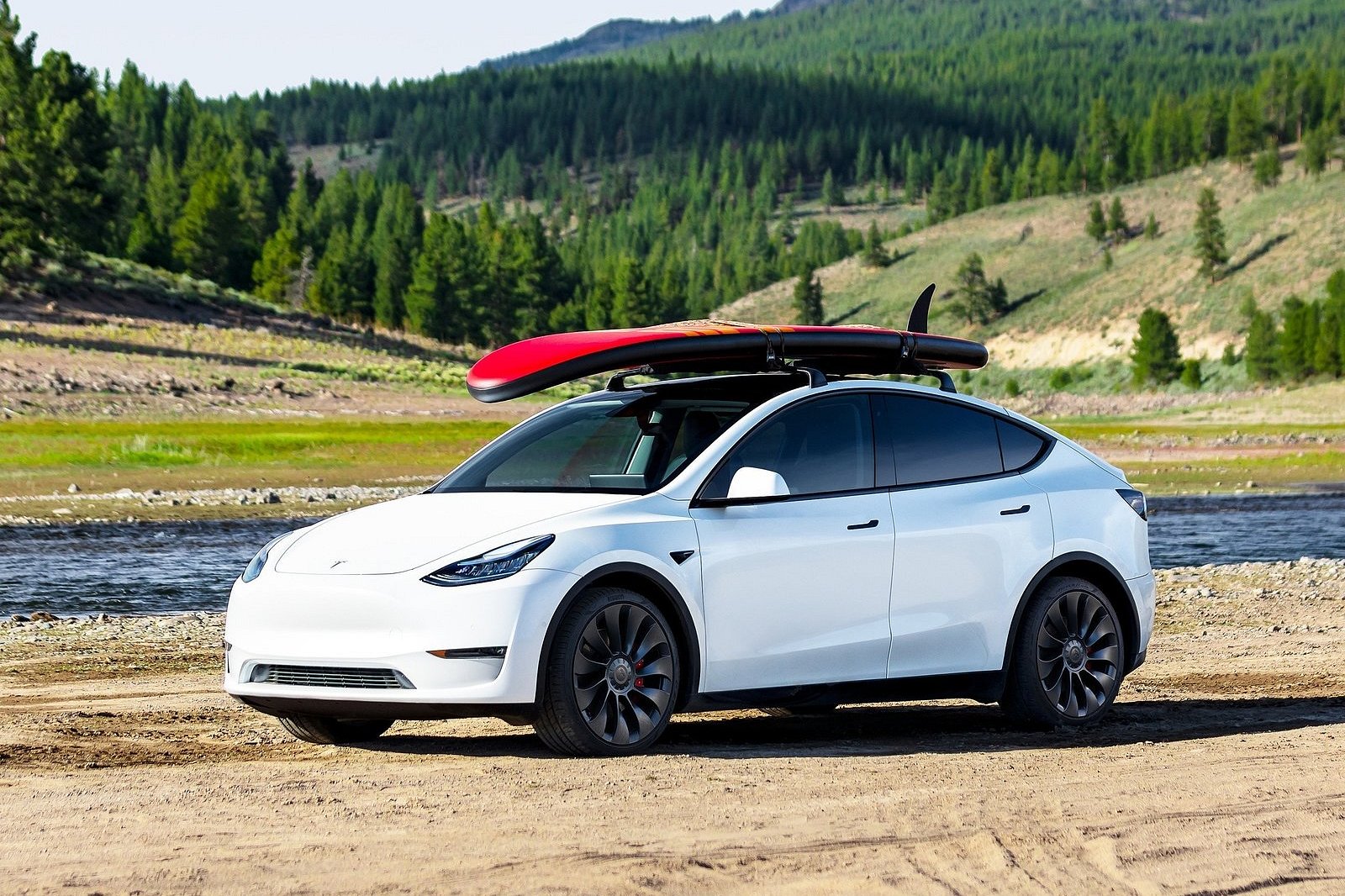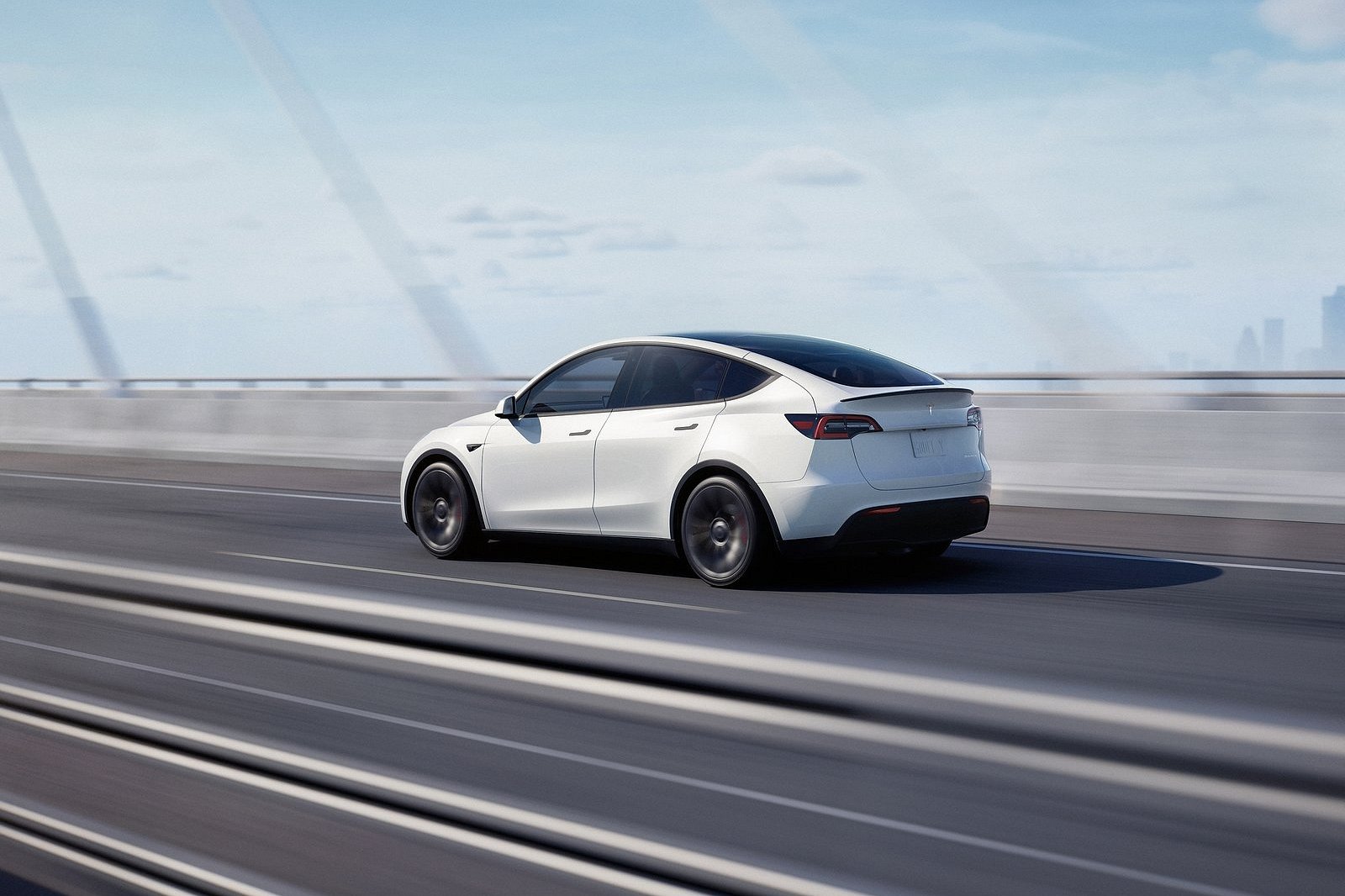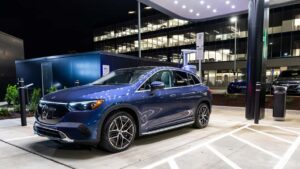Ugly, but unwavering.
Electric vehicle manufacturers have been exploring the concept of a solar roof, but none have successfully produced a feasible solution. As a result, a Tesla Model Y owner has decided to take matters into their own hands by designing a solar roof called Beta One. Reportedly, this innovation can increase the vehicle’s range by more than 20 miles per day.
Despite the seemingly low charging rate, it is still remarkably impressive. This is especially noteworthy when compared to other automakers who have only been able to achieve a mere four to six miles of range per day. However, Fisker has gone above and beyond by offering the SolarSky roof in their Ocean model, which boasts an astonishing 1,500 miles of range per year. While this may seem like a relatively small amount, providing approximately five miles of range per day, it can prove to be incredibly useful during off-road adventures.
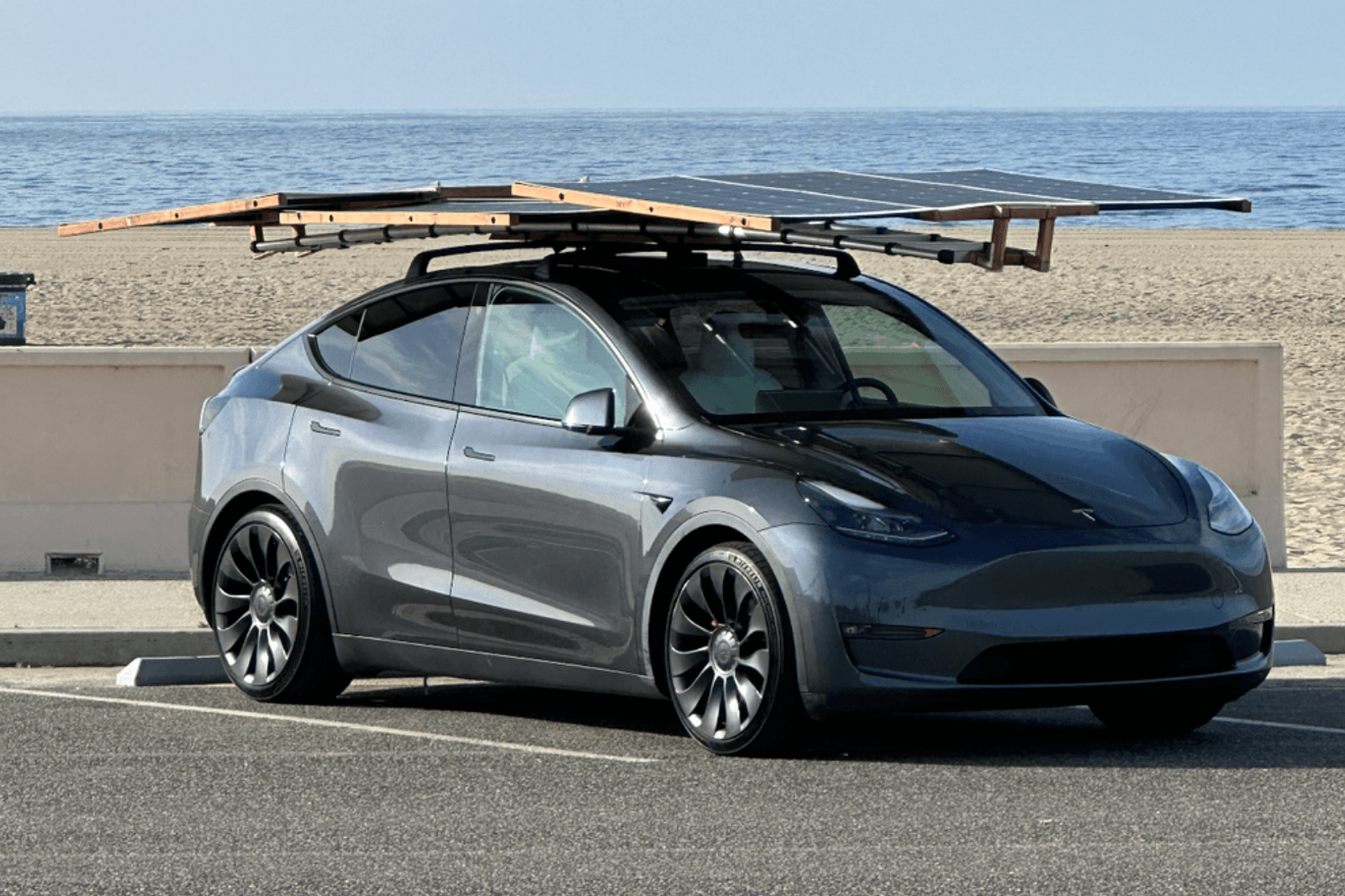
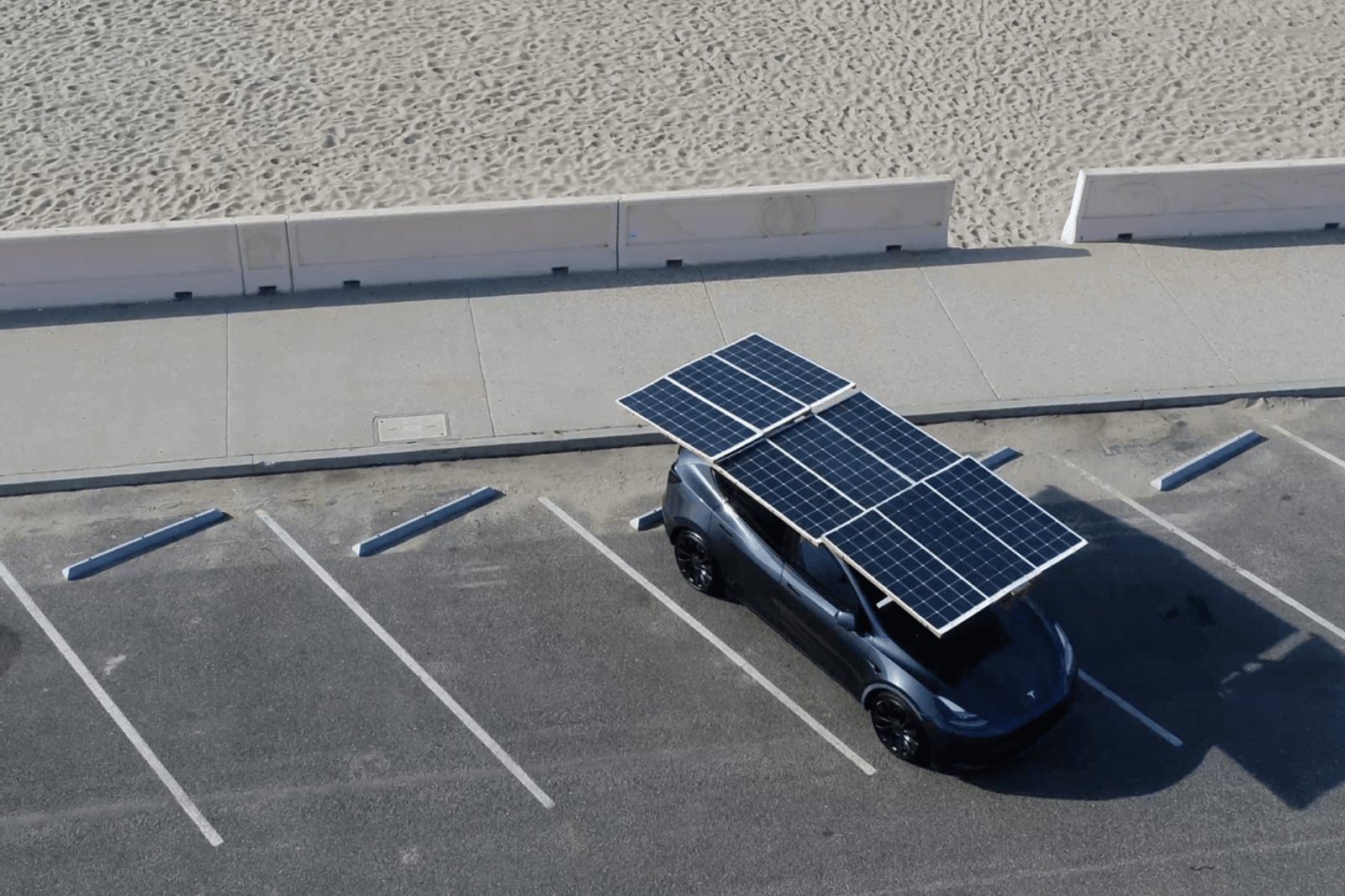

Tesla has recently announced plans to equip their models with solar roofs, including the highly anticipated Cybertruck. The popular electric pickup truck was initially promised to have a solar roof that could provide an additional 15 miles of range per day. However, despite its long-awaited debut in November 2023, the Cybertruck is still lacking a solar-powered mobile charger.
According to the innovator behind the Beta One, this cutting-edge technology can extend a vehicle’s range by 20 miles with just five hours of sunlight. In favorable weather conditions, the charging capacity could even reach up to 40 miles. Nevertheless, there is a trade-off for utilizing this technology – it adds a weight of less than 165 lbs and may impact the aerodynamics of the vehicle. Furthermore, the design may raise concerns regarding aesthetics since the solar panels are affixed on the roof instead of being seamlessly integrated into its structure.
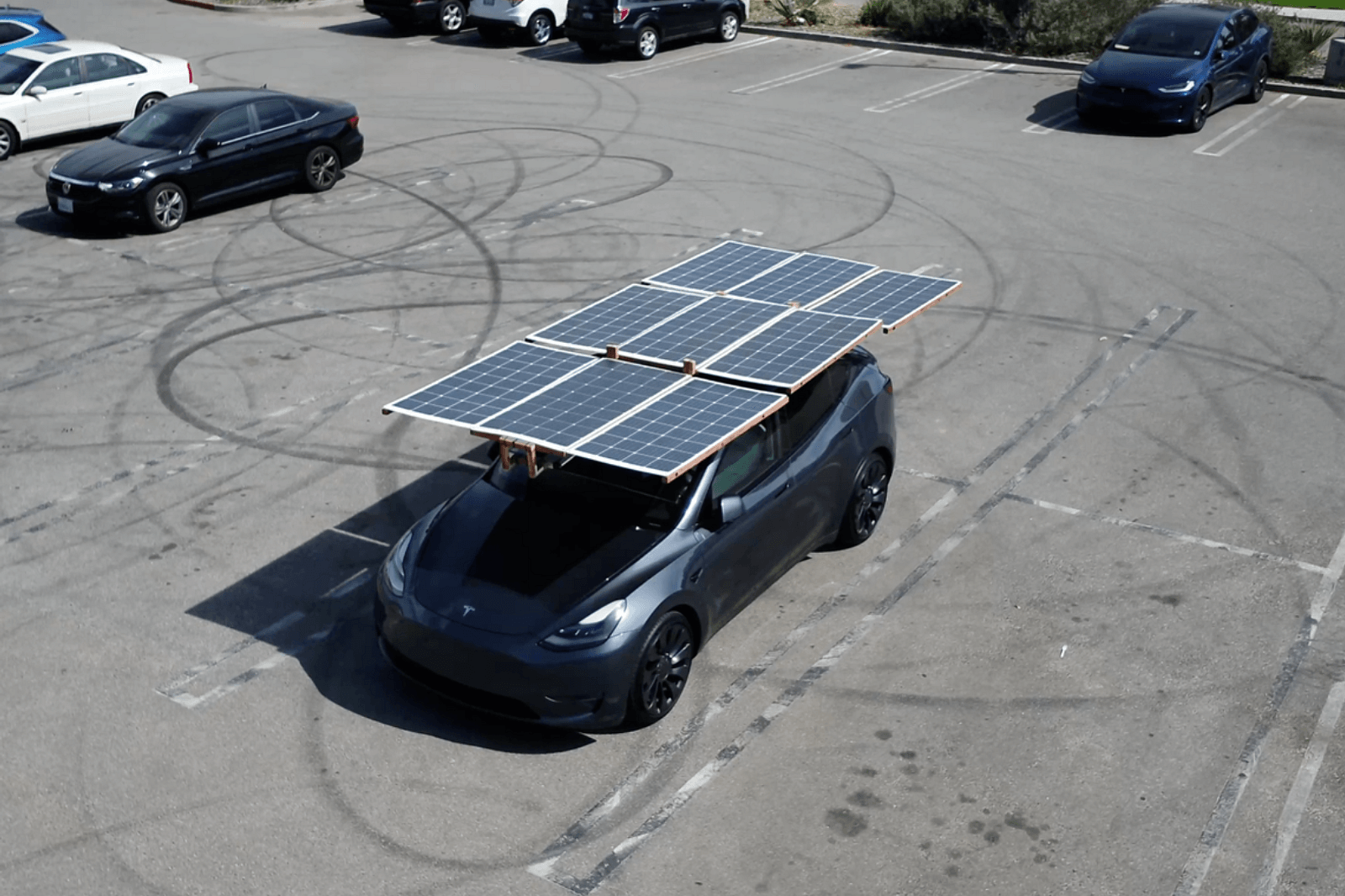
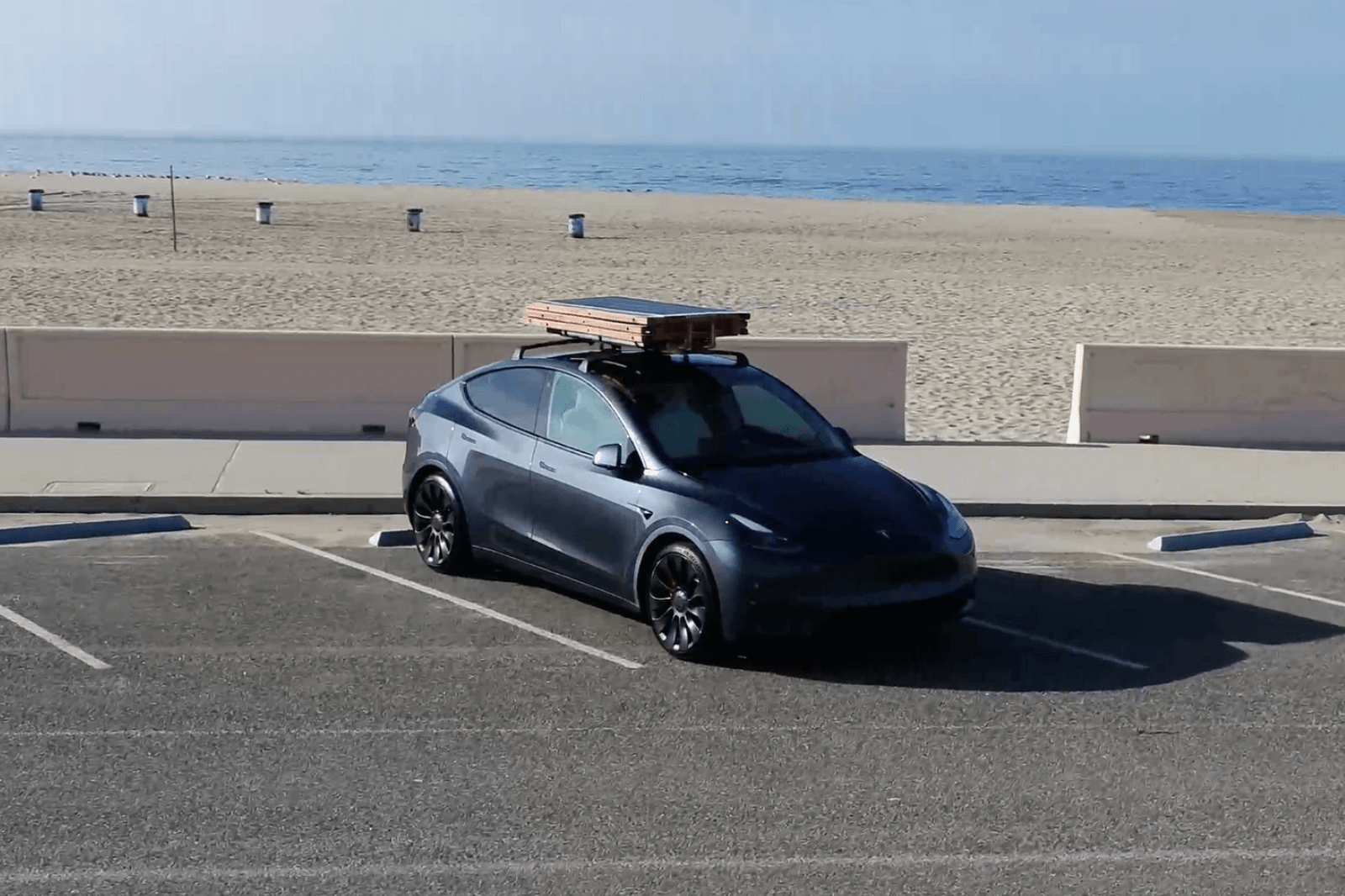

The Model Y can quickly replenish 162 miles of range in just 15 minutes when utilizing the rapidly expanding Supercharger network. However, the Beta One has a distinct advantage with its ability to charge at almost any location and has the potential to produce “100% clean and net-positive power from the sun.”
The proposed cost for the Beta One stands at $4,000, a seemingly unfeasible amount considering its current capability of adding only 20 miles of range per day. Nevertheless, let us acknowledge the inventor’s endeavor in introducing a novel concept. Hopefully, he can further advance the technology to make it a viable choice for electric vehicle owners, or maybe someone else can enhance it. In the meantime, using a charging plug remains the more practical option.

